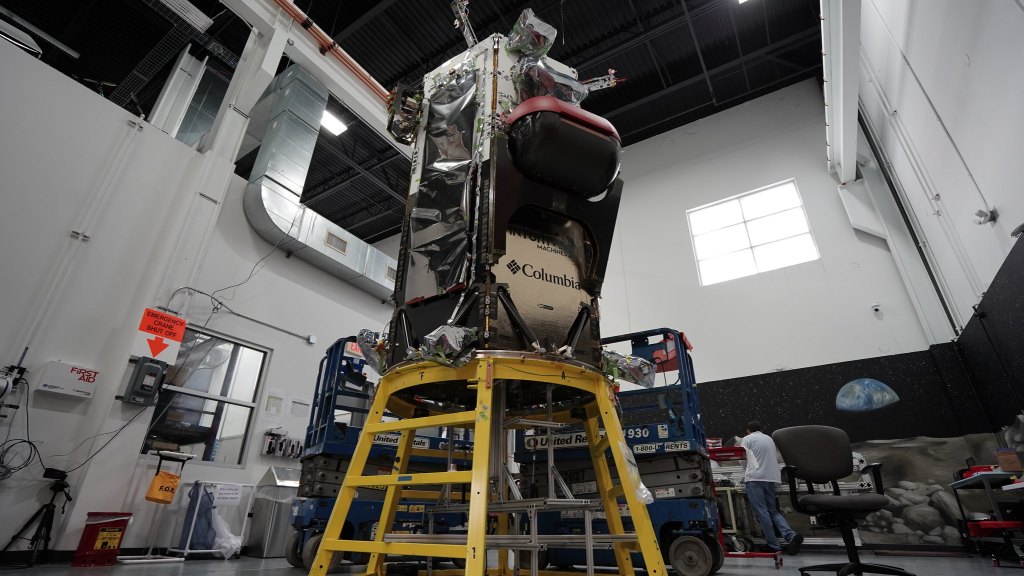Lunar technology company Intuitive Machines may well be the first private American company to land a spacecraft on the moon. The company said Monday that it was targeting a six-day slot starting on November 15 to launch its IM-1 lunar lander mission on a SpaceX Falcon 9 rocket.
Intuitive Machines is one of three companies that were awarded NASA contracts to deliver payloads to the lunar surface under the agency’s “Commercial Lunar Payload Services” program. (A total of five companies have received awards, including Firefly Space and Astrobotic.)
While it seemed like Pittsburgh-based Astrobotic would be the first of these to launch its lander, that company has been majorly hampered by delays to its contracted launch vehicle, United Launch Alliance’s Vulcan rocket. It now appears that Intuitive Machines will beat them to the punch.
The company, which went public earlier this year, is planning on delivering the lander to Kennedy Space Center in September, after finishing out some final testing at the company’s Houston facilities. Payload integration with the Falcon 9 payload fairing will take a little over a month, Intuitive Machines CEO Steve Altemus said. Should the company miss the November window for any reason, whether that’s bad weather or a technical issue, the company has a backup window in December.
A successful touchdown of the company’s Nova-C lander on the lunar surface would be a milestone victory for the company, which has derived most of its revenue to date from NASA and commercial contracts for payload delivery to the moon. For the second quarter, that revenue came to $18 million, with an operating loss of $13.2 million. The company concluded the quarter with $39.1 million in cash and cash equivalents.
Much of its future revenue is also from the government: A joint venture between Intuitive Machines and KBR was awarded a $719 million, five-year engineering services contract from NASA, in addition to a contracted backlog of $137.3 million at the end of the second quarter.
But working with the government has its own challenges. The Houston-based company withdrew its financial guidance for the full fiscal year due to “delays to government customer acquisition timelines, U.S. federal budget uncertainty and the uncertain cadence of new contractual awards,” according to a press release.
Intuitive Machines CFO Erik Sallee told investors during a second-quarter earnings call that the guidance withdrawal was not due to any change or loss in contract awards. “We haven’t lost anything that we previously had in our forecast,” he said.
Instead, Altemus said in a statement that the company is looking to diversify its revenue streams, submitting over $3 billion in proposals for opportunities in defense and aerospace, including human spaceflight.
The story has been updated to reflect the total number of awardees under NASA’s CLPS program.































Comment